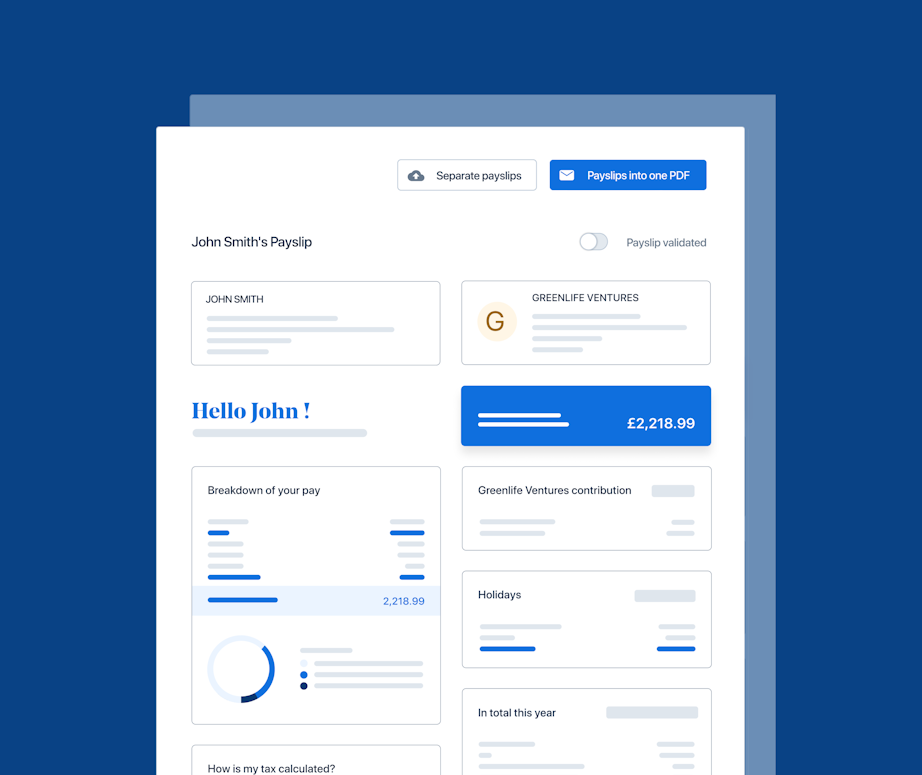Mental Health Awareness Week

Mental Health Awareness week happens once a year in the UK and is a time for organisations to come together to support and promote the importance of mental health. This has become a vast workplace topic, particularly post-pandemic, with companies looking at what initiatives can really improve mental wellbeing and to better understand the scale of mental health problems - which is still incredibly underestimated.
The theme for Mental Health Awareness Week 2024 is ‘Movement: moving more for mental health’, so let’s take a look at what companies can do to raise awareness around this and other key topics.
What is Mental Health Awareness Week in the UK?
For several years now, there has been a concerted global effort to raise awareness and understanding of mental health problems and the impact they can have on businesses and the economy.
Since 2001, the Mental Health Foundation has run the UK’s annual Mental Health Awareness week to draw attention, encourage discussion, and reduce mental health stigma.
The Pandemic drew particular attention to this topic as it exacerbated existing problems and left many vulnerable people to suffer alone without access to the necessary support structures to combat their issues.
What is the theme for mental health awareness week 2024?
As mentioned, the theme for Mental Health Awareness Week 2024 is Movement: moving more for mental health, which places a focus on the importance of movement for mental health.
Mental health defined
Mental health is “a person’s condition with regard to their psychological and emotional wellbeing.”
The operative words in this definition are the words “psychological” and “emotional”. Unlike other illnesses, mental health isn’t easily spotted by the untrained eye and doesn’t always provide obvious signs. The fact that mental health problems are “invisible” means that sufferers can often go under the radar, and their condition may be unconsciously ignored or missed entirely by those around them.
What is the cost of mental health?
Measuring the actual cost of poor mental health is complicated for a variety of reasons, but it’s important to keep these in mind and shine a renewed spotlight on this Mental Health awareness week here in the UK.
According to a study conducted by Deloitte, mental health problems cost UK employers £45 billion in 2019. One of the most significant contributors to that total is the rise in ‘presenteeism’. Twenty years ago, the term was not even in use, yet today, nearly nine in ten people admit to going to work when they are unwell.
Indeed, there is a stigma surrounding the subject, which means employees are often reluctant to open up and reveal personal problems, and a staggering 69% of people remain officially undiagnosed.
What is "presenteeism"?
Presenteeism is when someone turns up to work when ill or works beyond their allocated hours.
The rise in presenteeism can be attributed to many factors. Two of the most significant causes are long working hours and managerial pressure.
But while presenteeism has undoubtedly impacted the overall cost of mental health, other social issues have also been a cause.
Mental health at work
If the cost of mental health to UK employers was not concerning enough, the stats regarding overall mental health problems in the workplace reveal just how widespread the problem is.
According to the Mental Health Foundation, 1 in 6.8 people experiences mental health problems in the workpace.

Legislation bytes ⚖️
There is no legal difference between a sick day and a mental health sick day.
Did you know? 💡
A recent survey conducted in the US and published in the Harvard Business Review revealed that 50% of millennials and 75% of Gen Z-ers had left a job because of mental health reasons.
Why is mental health so bad in young people in the UK?
For one, the environment in which millennials and Gen Z-ers have grown up is entirely different from that of any previous generations. There can be little doubt that the technological age, increased digitalisation, and the birth of social media are likely contributors to an increased rise in mental health issues.
However, while social media may play a factor, other generational issues are likely to have a longer-term impact on young people's mental wellbeing.
Over the last 50 years, there has been an expectation that each generation would surpass the achievements of the one that came before it. However, for the first time in living memory, this seems unlikely to be the case.
Money problems are without doubt a leading cause of mental health issues among young people, including the aftershocks of the 2008 financial crisis, the Pandemic and the more recent Cost of Living Crisis.
What can be done to reduce the impact of mental health at work?
Fortunately, the impact of Mental Health Awareness Week and other initiatives throughout the UK in recent years has led to a concerted push by employers to start putting the right structures and support in place. Wellbeing programmes are on the rise, and companies are becoming more conscious of employees struggling with their mental health.
While this is an excellent first step, there is still significant work to be done to ensure that the stigma surrounding the subject is removed.
A better understanding of the causes and reasons behind mental health is another way that companies can reduce the impact within their organisation.
Through better managing working hours and workloads, as well as providing the right resources for employees to perform their duties, companies can create the foundations of a workplace environment and culture that encourages good working practices.
Organisations such as Perkbox, an employee experience platform, have worked hard to create a company culture that encourages openness and honesty regarding mental health.
Senior leaders openly discussed the importance of mental wellbeing and, after noticing some level of burnout within specific teams, relaunched and encouraged the use of their existing Employee Assistance Programme, which provided free, impartial and confidential advice for employees.
“Mental health awareness week is great, but we should be encouraged to talk, promote and look after mental wellbeing all year, every year. Today and every day, it should be our priority.”
Maddie Pozlevic, Employee Experience Leader @ Perkbox
Did you know?
The Mental Health Foundation has created a short book that provides advice to both employers and employees on how to best support mental health in the workplace.
Mental health helplines
Want to talk more about mental health? There are several helplines available, including Samaritans, Anxiety UK, Mind, OCD Action UK. There is also a list of other hotlines on the NHS website.
P11D Forms Explained: A Guide For UK Employers In 2025
How Much Does an Employee Cost UK Employers in 2025?

Bank Holidays UK: Employment Law Guide 2025
UK Statutory Notice Periods - An Explainer For Businesses
What Is OTE? How UK Businesses Can Unlock Its Potential







